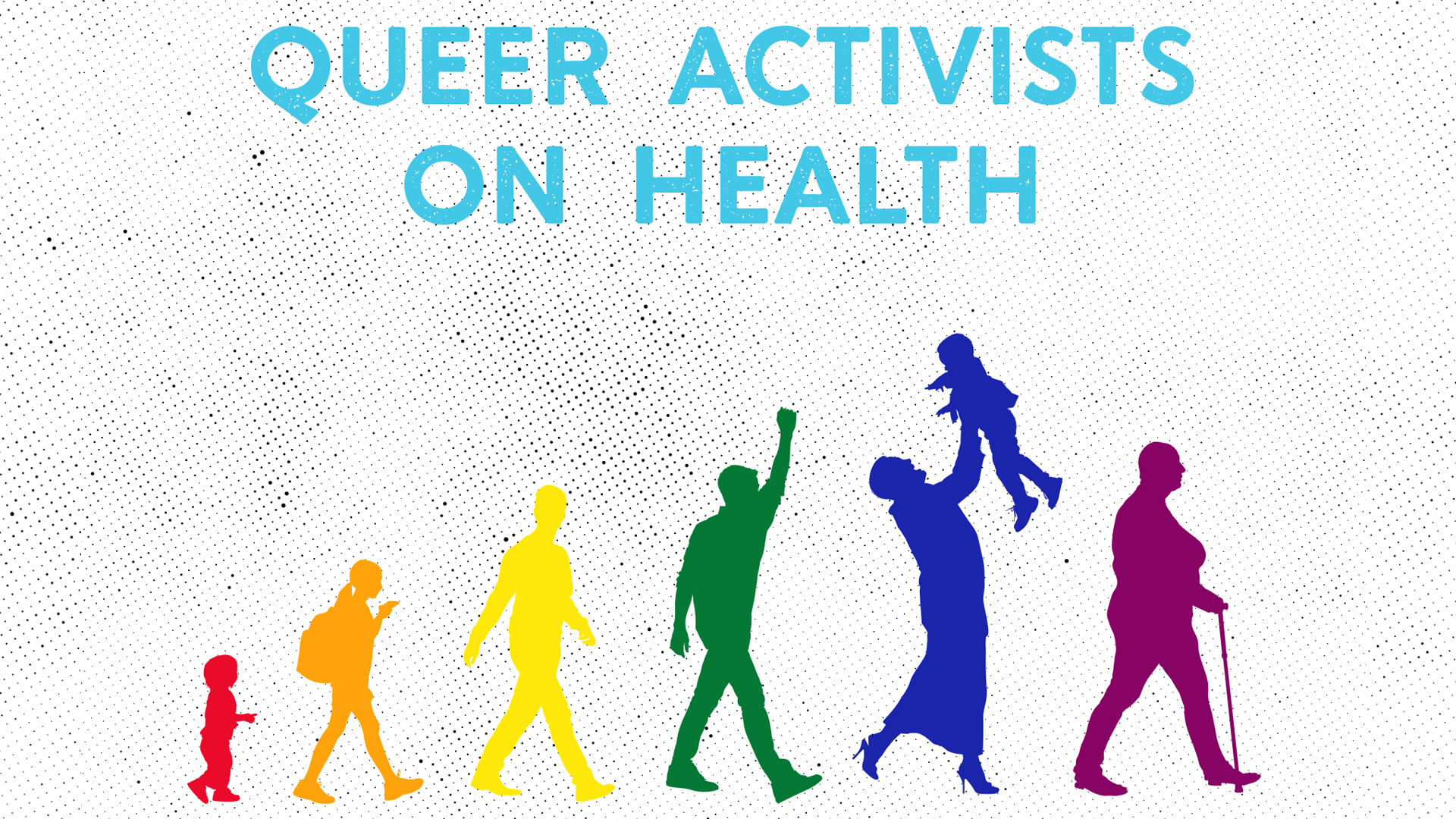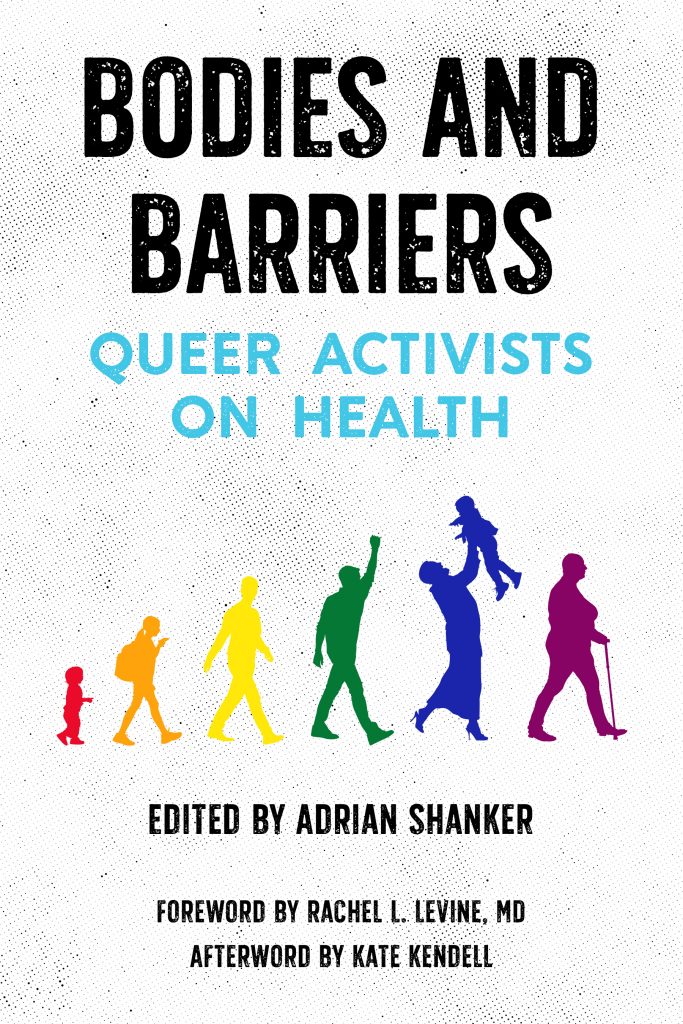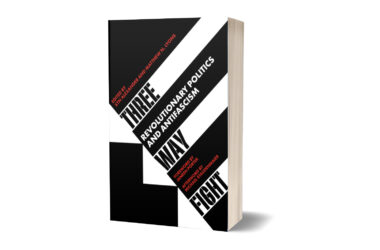By Adrian Shanker
The Seattle Lesbian
August 3rd, 2020
An excerpt from Bodies and Barriers: Queer Activists on Health.
On June 12, the anniversary of the Pulse Nightclub massacre, during Pride month, in the middle of a global pandemic, and at a time when many of us have been advocating and organizing for Black lives, the Trump administration published their final rule change to erase health care non-discrimination protections for Transgender Americans. A week later, the Trump administration urged the U.S. Supreme Court to overturn the Affordable Care Act. President Trump’s attack on our healthcare goes beyond his botched response to COVID-19. His administration is arguing for healthcare to be inaccessible to most Americans. This is, of course, outrageous.
But even with significant progress for LGBT rights over the last decade, LGBT people were already struggling to access affirming healthcare. Removal of non-discrimination protections and the Affordable Care Act in its entirety would bring us from bad to worse.
In Healthy People 2020, The U.S. Department of Health and Human Services defined health equity as “the attainment of the highest levels of health for all people.” This is a dream not yet realized. LGBT people experience barriers to care at every turn. These barriers leave LGBT people with lower rates of routine cancer screenings, and higher rates of sexually transmitted and chronic diseases.
In our COVID-19 times, this is a real problem. We have all been told that if we feel sick, we should go to the doctor to get tested for COVID. Or we have been told to go to public testing sites or pharmacies. But huge numbers of LGBT people don’t have a primary care doctor, and even more have had negative past experiences receiving healthcare due to our LGBT identities. Our community is right to worry if we will receive non-judgemental and non-discriminatory care.
At the same time as COVID-19 hit our shores, my new book Bodies and Barriers: Queer Activists on Health was released by PM Press. This book, an anthology of essays by 26 Queer activists from around the world, presents first person narratives to really underline how barriers to care effect our health outcomes.
Liz Margolies wrote about how LGBT people experience cancer care: I am sixty-five years old. I don’t have cancer. So far. That is a good thing. But I know it may not always be so. Age is the greatest risk factor for cancer, meaning that the older we get, the greater our odds of contracting cancer of some kind: ovarian cancer, breast cancer, or other less gendered cancers. As queer people’s lives go, mine has been one with less discrimination than most; I am white, professional, and live in New York City, a safe and welcoming place for people like me. I also have access to healthy foods and outdoor space to exercise. I do what I can to stay slim and strong.
I wonder sometimes what it will be like for me to have cancer. Will all my professional work and research serve to make my cancer experience less stressful? Is forewarned forearmed? Will I be bolder in my demands for the respect and care I want from both my providers and the health care system? What if I am forced to choose, as many are, between using the “best doctor” (who’s an asshole) or the young, less experienced queer doctor? What will I do?
Bisexual activist Robyn Ochs wrote about an experience with her primary care clinician: In my twenties, during an annual check-up with a new primary care physician, we had the following conversation:
Physician: “Are you sexually active?”
Me: “Yes.”
Physician: “What kind of birth control do you use?”
At the time, I was in a monogamous relationship with a woman. I wanted to reply, flippantly, “We use the lesbian method.” But I wasn’t that brave. I hemmed and hawed and squirmed uncomfortably and finally managed to state that my partner is a woman. It was awkward and uncomfortable.
Kate Kendell, who led the National Center for Lesbian Rights for more than two decades, wrote: “We’ve come a long way from the time when LGBT people were dying left and right from a treatable virus to witnessing some of those early AIDS activists marrying longtime partners. But the LGBT community still experiences open hostility and disregard from health care professionals, some LGBT health needs are still not covered equitably by health insurers, and policy makers still sometimes lack the political will to advocate for equitable policies for our community. From obstetricians refusing to treat lesbians, to gay men being ridiculed for wanting a prescription for pre-exposure prophylaxis (PrEP). Health care professionals can do better.”
Bodies and Barriers: Queer Activists on Health was written and edited before COVID-19, however it is very relevant in this moment. No the novel coronavirus doesn’t somehow have better gaydar than our own community and seek out queer people’s bodies to infect. But LGBT people are absolutely more vulnerable to this virus than the majority population.
We live with increased risk factors and we live with a system of healthcare that includes barriers to care at every step of the way. LGBT people are not more biologically inclined to be infected by COVID-19, but the social and cultural barriers in our society put us at greater risk.
One of the most insidious things that has been in the news this year is that during a public health pandemic, the Trump administration has tried repeatedly to make healthcare harder to access. But let’s not forget, healthcare bias against the LGBT community is not a new issue. There is no defense for an ideology that would sacrifice the health of our communities to bolster the profits of health insurance companies. There is no defense for President Trump’s botched response to COVID-19. But there is resistance. One of the ways we can fight back against inequitable health policies is to share our stories of the challenging experiences we have had trying to access healthcare information or services. Bodies and Barriers: Queer Activists on Health raised up 26 stories. But share yours! Share your story with your doctors. Share your story with your legislators. Share your story with activists fighting to fix our broken healthcare system. Share your story because healthcare is a human right.
Adrian Shanker is editor of Bodies and Barriers: Queer Activists on Health and the executive director of Bradbury-Sullivan LGBT Community Center in Allentown, PA. More info at www.adrianshanker.com
Excerpts are from Bodies and Barriers: Queer Activists on Health (PM Press, 2020) which is available from any local bookseller or from www.pmpress.org/bodiesandbarriers
Adrian Shanker is an award-winning activist and organizer whose career has centered on advancing progress for the LGBT community. He has worked as an arts fundraiser, labor organizer, marketing manager, and served as President of Equality Pennsylvania for three years before founding Bradbury-Sullivan LGBT Community Center in Allentown, PA, where he serves as executive director. An accomplished organizer, Adrian has led numerous successful campaigns to advance LGBT progress through municipal nondiscrimination and relationship recognition laws and laws to protect LGBT youth from conversion therapy. A specialist in LGBT health policy, he has developed leading-edge health promotion campaigns to advance health equity through behavioral, clinical, and policy changes.






